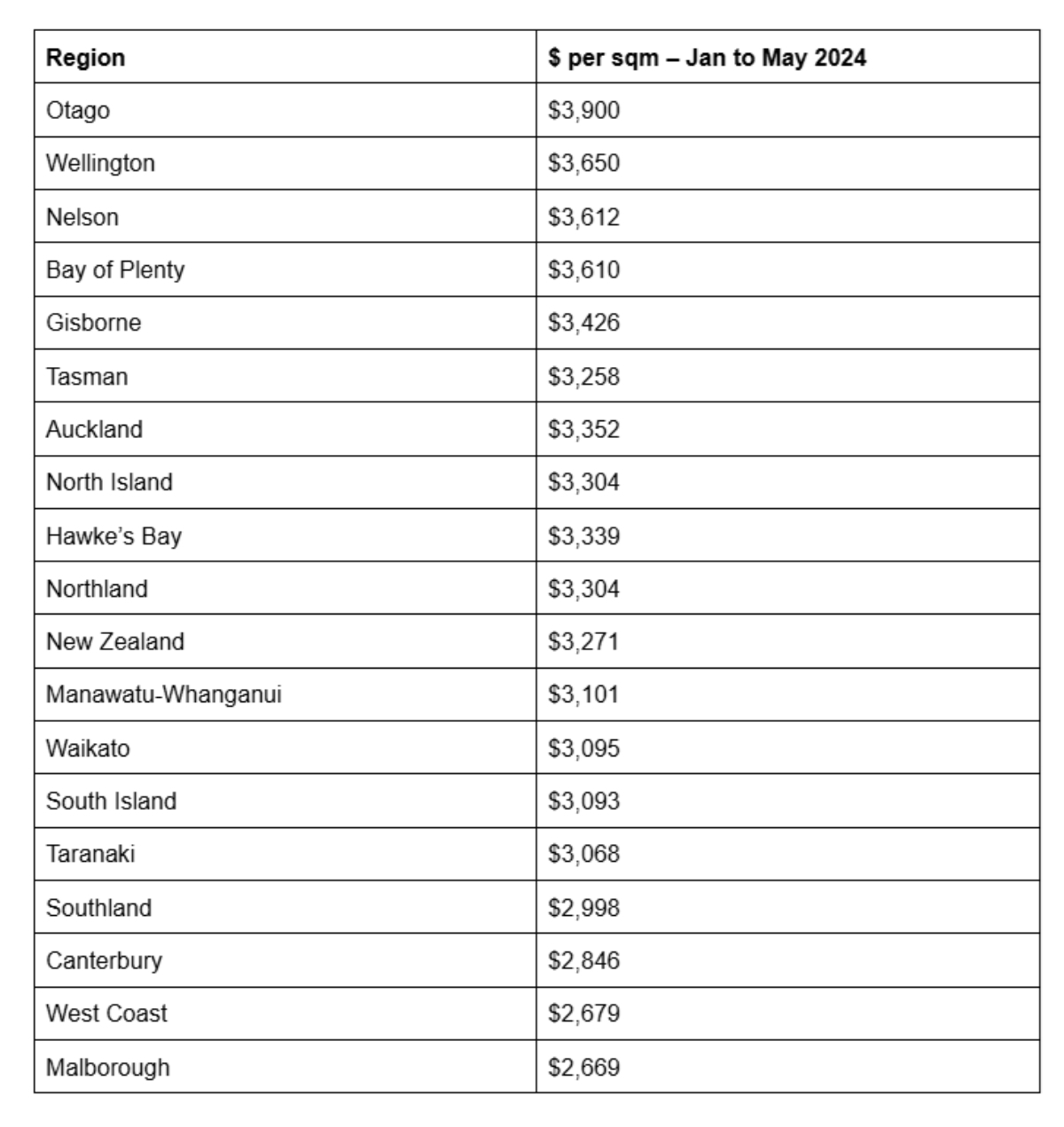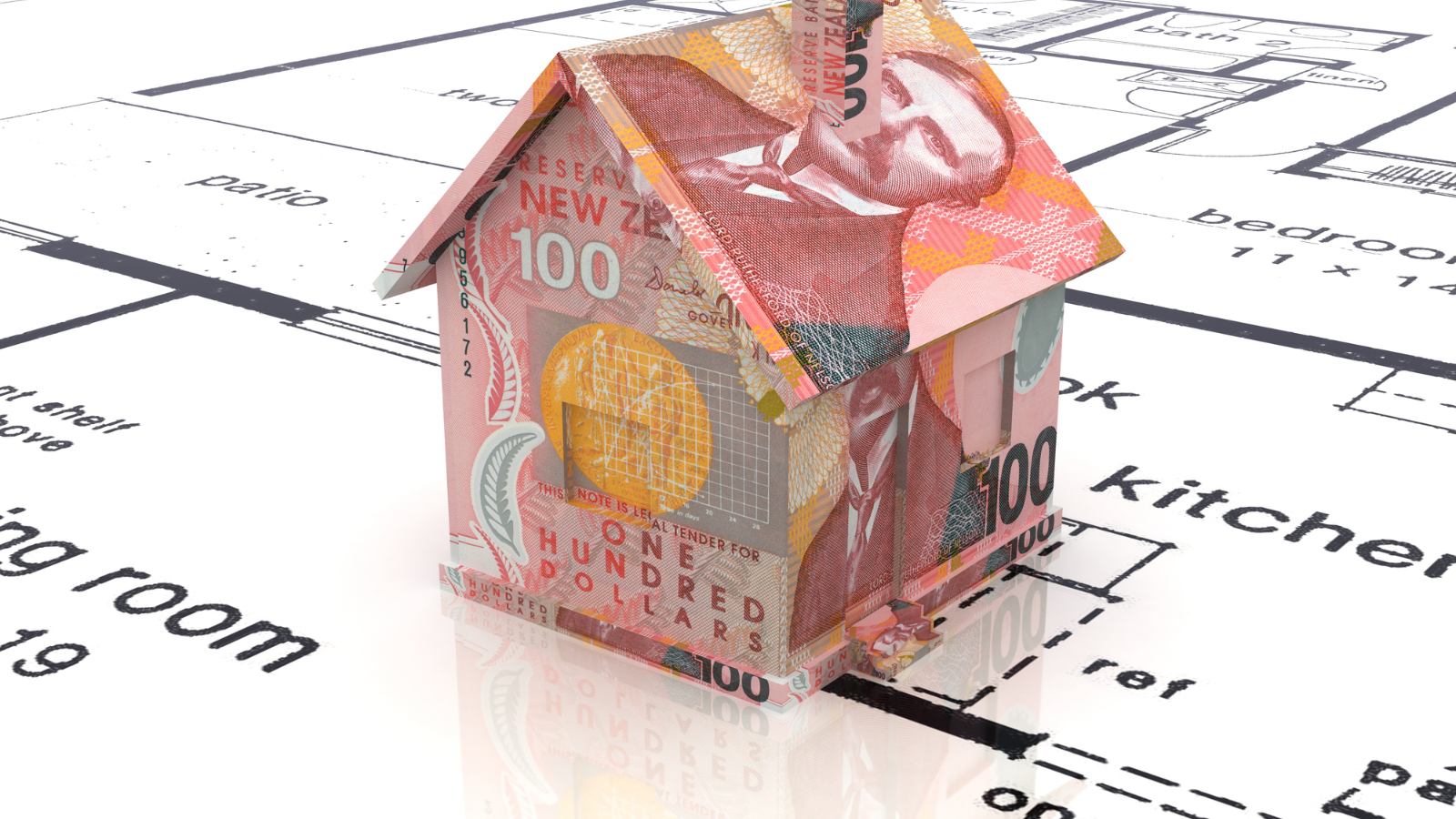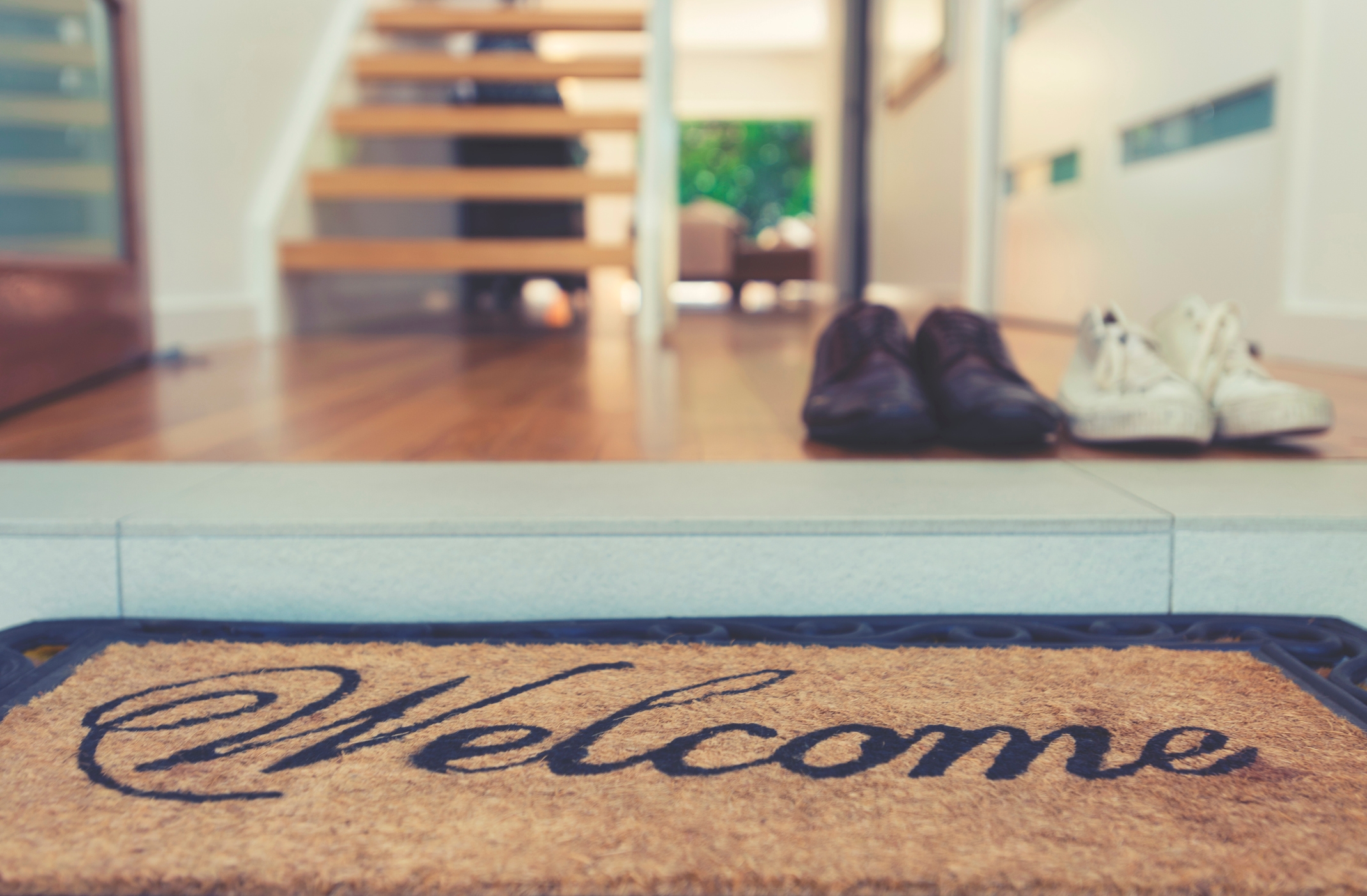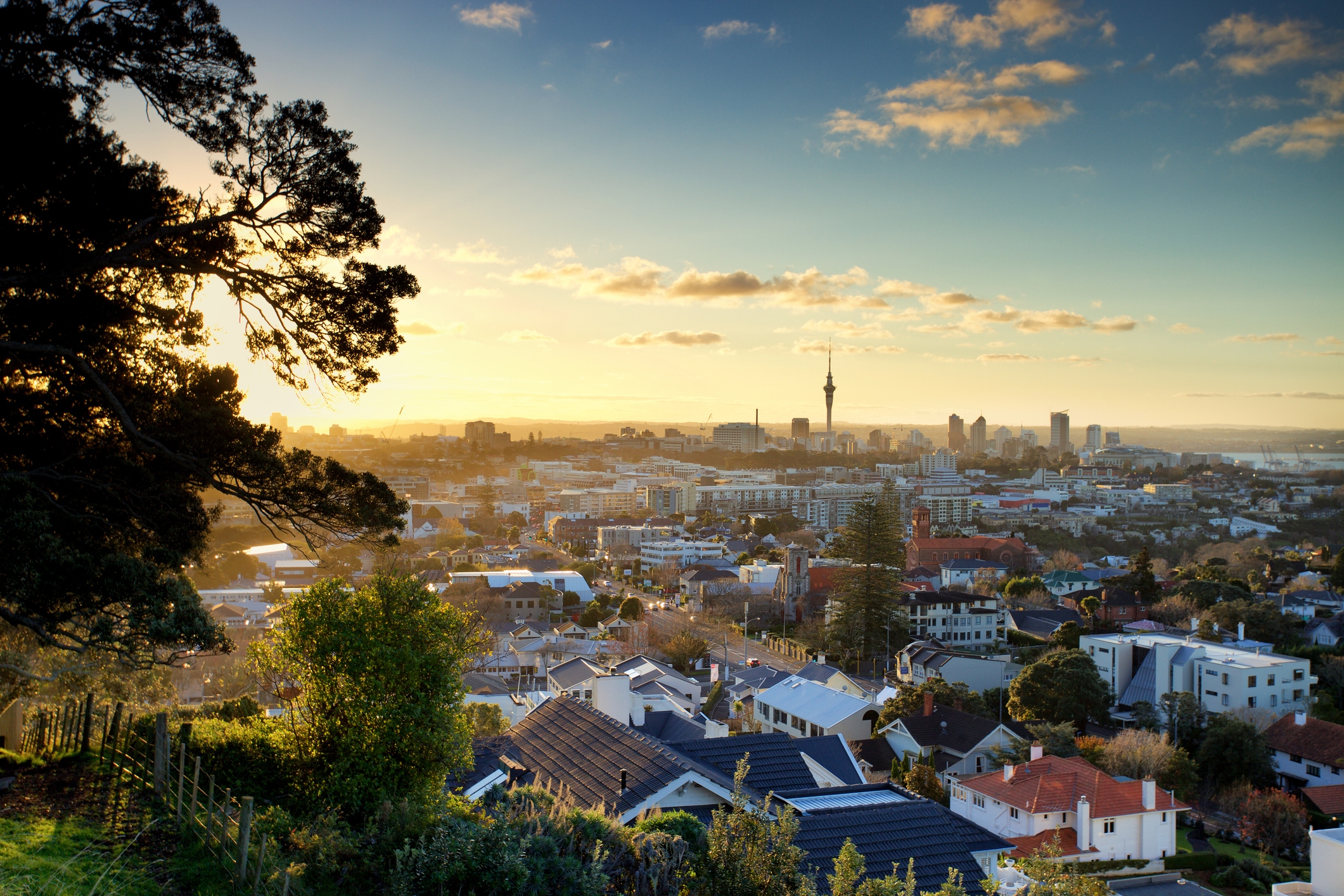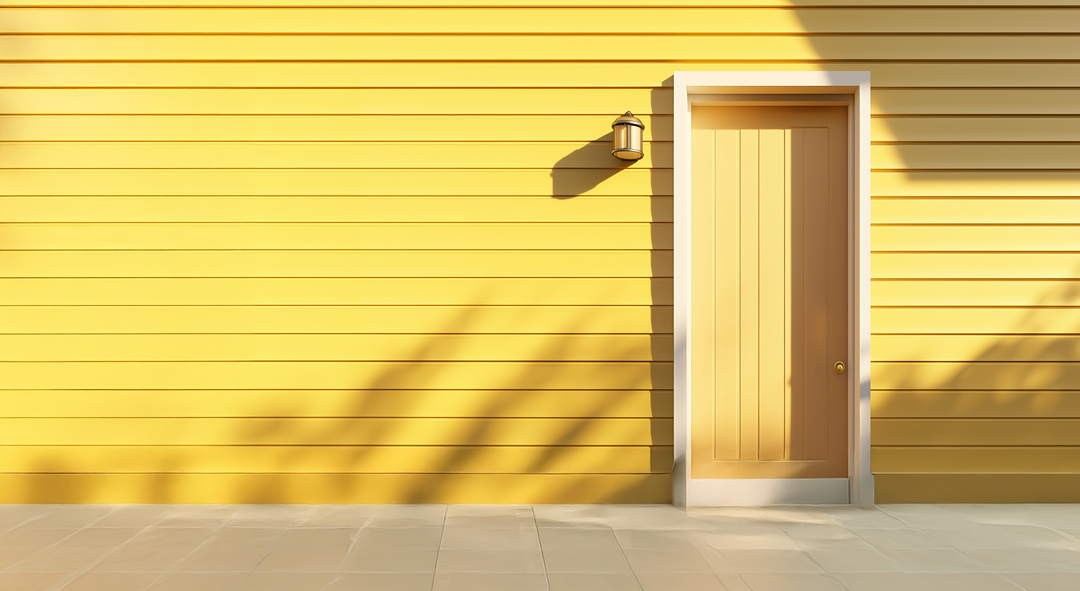Buying guide
Building cost per square metre in NZ (2025)
Hint – it’s not cheap.

There are so many benefits to building a home. You’ll be able to customise the materials and layout to suit your lifestyle, then once it's done, you can end up with a more healthy and energy efficient home that requires less maintenance.
Sounds great right? Yes, but there are risks too.
Budget blow outs are the biggest risk of all and they’re becoming more common in 2024 and 2025 as the cost of building increases. The best way to avoid overruns is to get a clear idea of how much everything will cost in advance – to help you get started we’ve taken a closer look at the cost per square metre (sqm) to build a house in NZ.
Building cost per sqm in NZ
Building costs per sqm in NZ vary depending on the size of your build, your location, your chosen site, and how you build:
For a very basic home expect to spend $2,500 per sqm minimum, but the average home will cost more, around $3,500 to $4,000.
If you build something custom expect to spend even more, from $4,000 upward.
Premium custom homes can have a much higher build cost per square metre. Anywhere from $6,000 to $10,000 or more.
Note – these costs may not include landscaping, fencing or concrete driveways. Before you enter any contract to build make sure you know exactly what isn’t included so that you can budget accordingly for those extras.
How much does building really cost?
Building cost per sqm by location
Apart from the obvious stuff like the type of house you build, and how expensive your builder is, location plays a big part in determining build cost per sqm.
Canstar recently published a full list of average construction costs per sqm by region, according to building consent applications. Real costs are usually higher than those listed below, as extras are often added after the consenting process is complete.
Source: Canstar
As you can see, if you’re building in Otago, Nelson, Wellington and the Bay of Plenty you can expect to spend much more. Whereas if you’re building in Marlborough or the West Coast you might spend less.
Some of this variance is due to the type of land in each area. For example, sections in Wellington are often very steep, which increases the cost of the build. Other times it's because of the cost of labour, which tends to be high in Otago (partly because housing in the region is so expensive).
What influences cost per sqm?
To ensure you can keep the cost of your home down it’s important to know what influences a home’s cost per sqm in NZ:
Size: smaller homes generally have a higher cost per sqm. That’s because a large portion of the cost of any build comes from things like wiring, plumbing, kitchens and bathrooms. A small home will still need one or two bathrooms and it may take a plumber or electrician a similar amount of time to get the job done.
Builder margins on labour and materials: most of the cost of your build will come from labour and materials so the margin your builder charges you on these will determine costs. Most builders charge around a 10% margin.
Section: if your section is steep or the ground below is unsuitable for building, requiring engineering design, this will push the cost per sqm up.
Finishes, fixtures and fittings: your choice of finishing materials, fixtures and fittings (like paint, taps, benchtops and blinds) can influence the cost of any build.
Structural complexity: building complex structures or using building techniques that are time consuming will increase the labour cost when building.
Materials: using expensive materials can greatly increase build costs – especially expensive cladding like cedar or stone, or large expanses of glazing.
Revisions to existing plans: the more you change your plans during the building process, the more costs will increase. Do as much work up front as possible to avoid expensive revisions.
As a general rule, when building, complexity equals costs. If you’re on a tight budget, aim to build a single story home with a simple shape (squares and rectangles are the cheapest), on a solid, flat section, using time efficient and effective building methods. Find a builder who understands your vision and is as transparent as possible around costs off the bat to help ensure you know what you’re getting into.
How much does building a house cost? How long is a piece of string?
Tips for managing construction costs
Have a contingency fund
Put aside a contingency fund of 15% of total build costs as soon as you’ve received quotes. If you’re lucky you won’t need this, but it’s better to have the funds ready than not be able to finish construction.
Ensure your construction contract is airtight
No matter who’s building your home it’s essential that you have an airtight construction contract. It’s a good idea to have a lawyer with plenty of relevant experience look your contract over to spot clauses that may not be in your favour and ensure you understand it. It’s particularly important that your lawyer explains any clauses that relate to cost variances.
Keep an eye out for provisional or variable costs
These are the costs in a contract that aren’t fixed early on. It could be that you haven’t chosen the sinks and taps that are going into your bathrooms, or that your builder hasn’t investigated the extent of earthworks that will be required. It’s always best to decide on as much as possible upfront and get experts to help you figure out costs in advance. That way when you’re ready to build there’ll be less uncertainty.
Choose your builder wisely
If you’re trying to build a cost-efficient home, it’s best not to choose a builder who mainly works on luxury homes. Look for someone with a track record of completed homes similar to what you’re trying to build, with testimonials from past clients and positive online reviews.
They should always be a registered master builder with all the relevant qualifications and insurances.
Use standard plans where possible
Customisation increases costs, so where possible use standard plans. Many group home builders provide cost calculators on their websites, which can help you get an idea of what your build may cost if you’re willing to limit customisation.
Building may be expensive, but it could be worthwhile.
Sort out your living plans (and prepare for delays)
When you build a home you’ll need to have somewhere to live during construction. You might be paying a double mortgage, or rent and your construction loan – which can obviously be very expensive.
Worse, you can’t be sure when the build will finish, as delays of up to six months or even a year aren’t uncommon. With that in mind, before you start your build, make sure you do your sums to ensure you can afford your accommodation costs, plus repayments on your construction loan. If not, it may be an idea to ask parents or relatives about that spare room of theirs.
Get your construction loan sorted early
One of the first things you should do when you decide to build is speak to your lender or mortgage broker to start arranging finance.
Your bank will have several conditions you need to meet in order to secure finance, and this helps set the agenda for your build. Once you have your construction loan sorted, you’ll also have a clear idea of your total costs so you can start budgeting.
DISCLAIMER: The information contained in this article is general in nature. While facts have been checked, the article does not constitute an advice service. The article is only intended to provide general information about construction costs in New Zealand. Nothing in this article constitutes a recommendation that any service or financial product is suitable for any specific person. We cannot assess anything about your personal circumstances, your finances, or your goals and objectives, all of which are unique to you. Before making decisions we highly recommend you seek professional advice.
Author
Advice & Tools
Search
Other articles you might like

.jpg)
